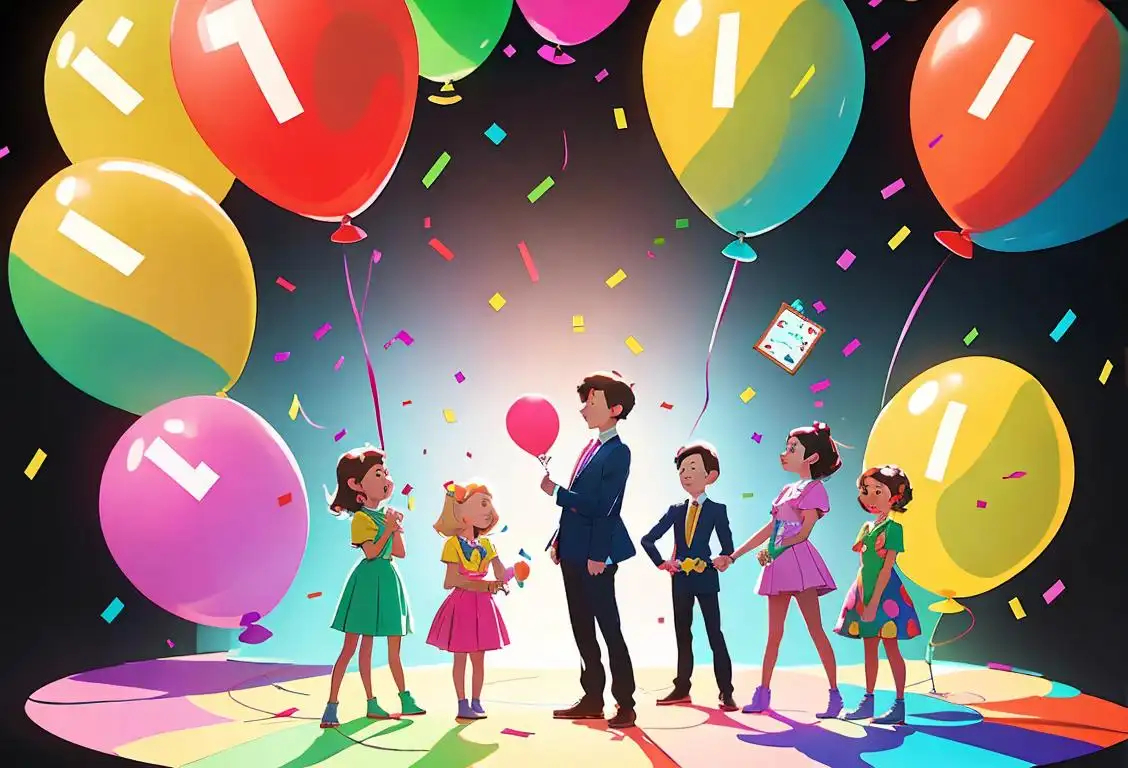National Freelance Day

Hey there, freelance enthusiasts! Are you ready to celebrate National Freelance Day? Grab your laptops and cozy up in your favorite coffee shop (or your comfiest pajamas at home), because we've got all the details you need to make this day extra special.
When is Freelance Day?
It's national freelance day on the 18th June.
The Internet and the Rise of Freelancing
Before we dive into the wonderful world of freelance, let's take a quick journey back in time. It's hard to believe, but freelancing wasn't always as popular as it is today. In fact, the internet played a significant role in the rise of this modern working lifestyle.
Back in the day, finding freelance gigs meant networking at events, having a killer portfolio, and hoping for referrals. But thanks to the World Wide Web, freelancing became more accessible to people from all walks of life.
Creative souls, developers, writers, designers, you name it - the internet provided them with a platform to showcase their talent and connect with clients from around the globe. Suddenly, the traditional 9-to-5 job started to lose its appeal, and the freedom and flexibility of freelancing gained popularity.
Celebrating National Freelance Day
Now that we know a bit of background, let's talk about how we can celebrate National Freelance Day. Whether you're a freelancer yourself or you simply appreciate the hard work and dedication freelancers bring to the table, here are a few suggestions to make this day special:
- Give a Shout-Out to Your Favorite Freelancer: Take a moment to recognize and appreciate the awesome freelancers in your life. Send them a heartfelt message, share their work on social media, or even treat them to a cup of coffee.
- Explore Freelance Marketplaces: Dive into the world of freelance platforms like Upwork, Fiverr, or Freelancer.com. Check out the incredible services freelancers offer and maybe even hire someone for your next project.
- Share Your Freelance Journey: Whether you're a seasoned freelancer or just starting out, share your experiences and tips online. Tag your posts with #NationalFreelanceDay to join the celebration.
- Learn a New Skill: Freelancers are known for their versatility and ability to wear multiple hats. Why not use this day to learn a new skill that can enhance your freelance career? Maybe coding, graphic design, or even podcasting!
Did You Know?
Did you know that the word 'freelance' was first used in the 19th century? It was derived from a medieval term 'free lance,' which referred to a mercenary knight who fought for various employers rather than a single lord. So, the next time someone asks you about your freelance career, you can impress them with this historical tidbit!
History behind the term 'Freelance'
1820
The Origin of 'Freelancer'
The term 'freelance' originated in the early 19th century, specifically during the year 1820. At that time, it referred to a medieval mercenary knight who was not committed to any particular lord or kingdom. These knights were available for hire and offered their skills and services to whoever would pay them, hence being 'free' from any permanent allegiance.
1861
The Transition to 'Freelance Journalist'
In 1861, 'freelancer' started to be used in the context of journalism. During the American Civil War, when journalists were not officially employed by newspapers, some began selling their works to multiple publications. These independent journalists were described as 'freelancers' due to their non-exclusive work arrangements.
20th Century
Expansion Across Industries
Throughout the 20th century, the term 'freelance' expanded to encompass various industries beyond journalism. As more individuals sought to work independently and offer their services on a project basis, the concept of freelancing gained popularity. Fields such as photography, design, writing, programming, and consulting embraced the freelance model, leading to the term becoming ubiquitous in the professional world.
1990
Birth of Online Freelancing Platforms
The year 1990 marked a significant turning point in the history of freelancing with the emergence of online platforms that connected freelancers with clients. Websites like Upwork (formerly Elance and oDesk) and Freelancer.com revolutionized the way freelancers could find work opportunities. These platforms created a global marketplace where freelancers from various countries and backgrounds could showcase their skills and connect with clients around the world.
Present Day
Rise of the Gig Economy
In the present day, the term 'freelance' is closely associated with the growing gig economy. The gig economy refers to a labor market characterized by short-term contracts or freelance work as opposed to traditional permanent employment. The rise of digital platforms and technology has facilitated the gig economy's expansion, allowing more people to engage in flexible, project-based work arrangements.
Did you know?
Did you know that the word 'freelance' was first used in the 19th century? It was derived from a medieval term 'free lance,' which referred to a mercenary knight who fought for various employers rather than a single lord. So, the next time someone asks you about your freelance career, you can impress them with this historical tidbit!Tagged
fun financeFirst identified
8th October 2015Most mentioned on
18th June 2020Total mentions
125Other days
Opposite Day
Numeracy Day
Happiness Day
Suicide Prevention Month Day
Philanthropy Day
Honesty Day
Mathematics Day
Bison Day
Splurge Day
Veterans Day









